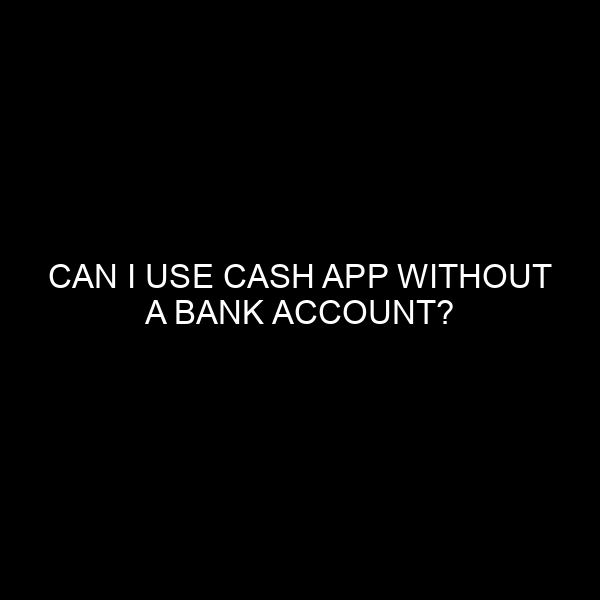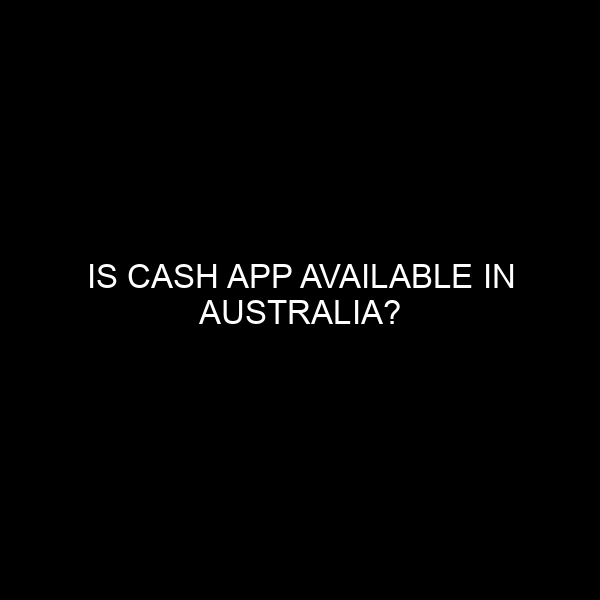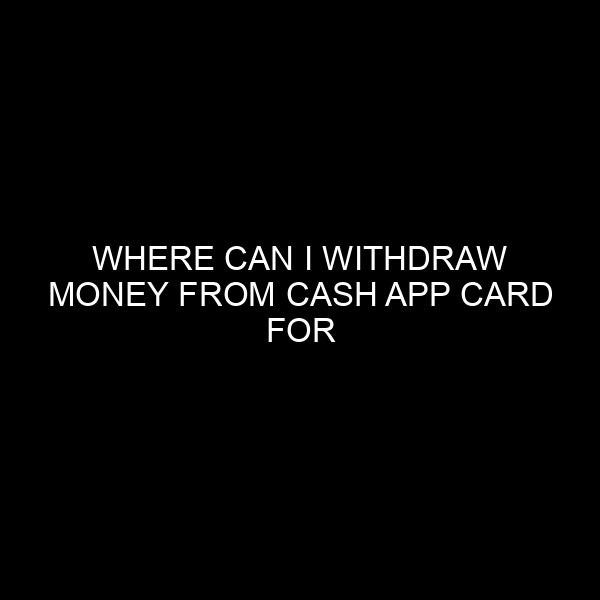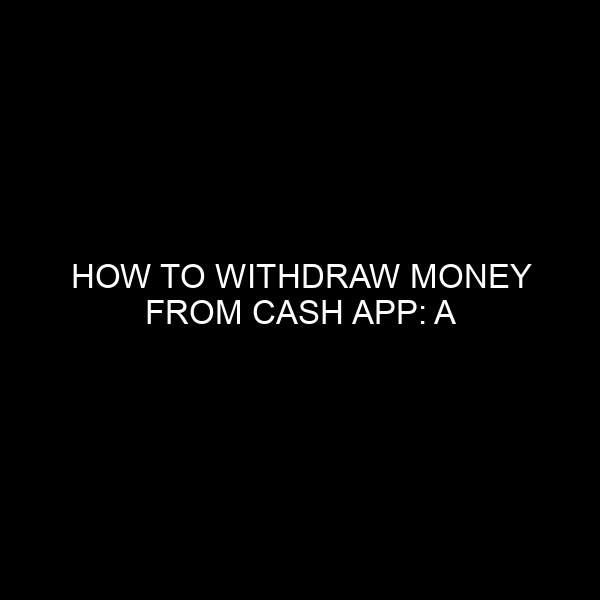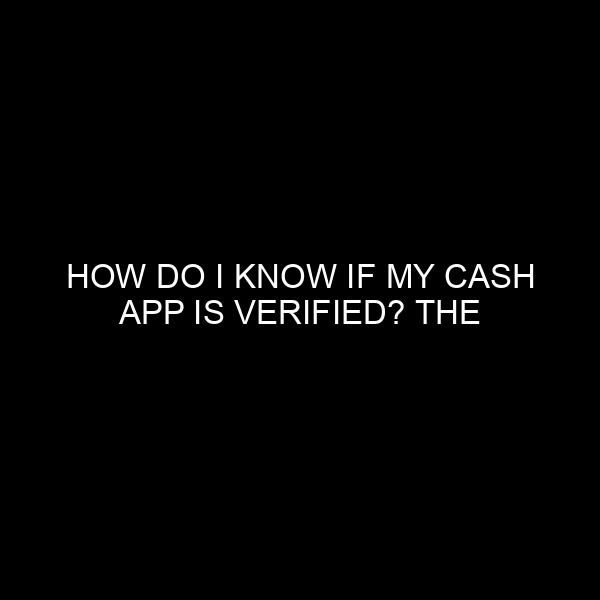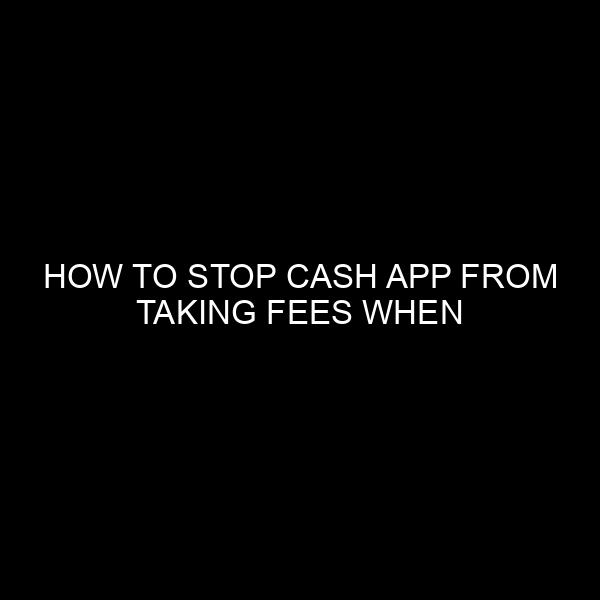Can I Use Cash App Without a Bank Account? Understanding the Dynamics
Navigating the world of financial technology, especially when it comes to mobile payment platforms, can be intricate. One such platform that has gained prominence over recent years is Cash App. A product by Square Inc., Cash App allows users to send, receive, and save money, amongst other functionalities. But what about those who don’t own a conventional bank account? Can they too harness the power of this modern financial tool? The answer to this question isn’t as straightforward as it may seem, and through my experience in the financial market and banking industry, I’ll endeavor to provide a detailed breakdown.
A Basic Introduction to Cash App
Before we delve deep, it’s essential to understand what Cash App is. Launched in 2013 by Jack Dorsey, co-founder of Twitter, Cash App started as a straightforward money transfer platform. Its user base skyrocketed, partly due to its simplicity and partly due to the increasing need for digital transaction methods. Today, beyond sending and receiving money, users can invest in stocks and cryptocurrencies, set up direct deposits, and even get a physical Visa debit card – referred to as the Cash Card.
Cash App Without a Bank: The Primary Question
On the surface, the primary function of Cash App is to facilitate money transfers between bank accounts. This leads many to assume that a bank account is a prerequisite. However, the truth is nuanced.
Yes, you can set up and use Cash App without a bank account. When you do not link a bank account, Cash App provides you with a virtual wallet, allowing you to send and receive funds within the platform. This means that while you can’t withdraw money directly to a bank, you can still receive funds, maintain a balance, and send money to other Cash App users.
However, there are caveats and nuances to consider:
- Cash Card: Cash App offers a feature called Cash Card, a free, customizable debit card linked to your Cash App balance. If you’ve not linked a bank account, this card becomes particularly useful. You can use it like any other debit card, making payments at POS terminals and online. However, you’ll need to ensure your Cash App has a sufficient balance.
- Adding Funds: Without a bank account, the primary way to add funds to your Cash App would be through receiving money from other users. Direct deposit is another option, where you can get your paycheck directly to your Cash App balance if your employer supports it.
- Cash Out: If you don’t have a bank account linked, and you want to “cash out” your Cash App funds, it becomes tricky. You’d often have to send it to someone else who can withdraw it for you or spend it using the Cash Card.
- Security: Having a bank account linked can often act as a secondary verification point. Without it, ensure you keep your app’s security features updated, such as using touch ID, PIN, or face recognition.
Why Some People Prefer Using Cash App Sans Bank
You might wonder, “Why would anyone want to use Cash App without a bank account in the first place?” The reasons are manifold:
- Underbanked or Unbanked: A significant percentage of the population is underbanked or unbanked. This means they either don’t have access to conventional banking services or choose not to use them. For them, platforms like Cash App provide a semblance of banking functions.
- Privacy: Not linking a bank account means there’s a layer of separation between your main funds and your Cash App transactions. Some users prefer this, especially if they use Cash App for discretionary spending or peer-to-peer transfers.
- Ease of Use: Simply put, not everyone wants to go through the hassle of linking their bank details, especially if they only plan to use Cash App occasionally.
Conclusion
Using Cash App without a bank account is feasible and, for many, a strategic choice. However, the decision comes with its share of limitations, especially concerning adding to and cashing out funds. As with all financial decisions, it’s crucial to weigh the benefits against the potential drawbacks.
